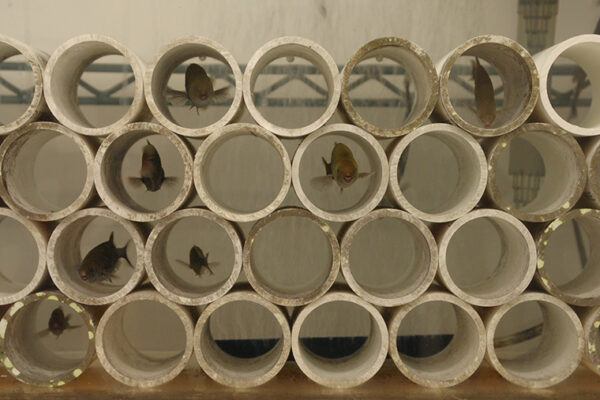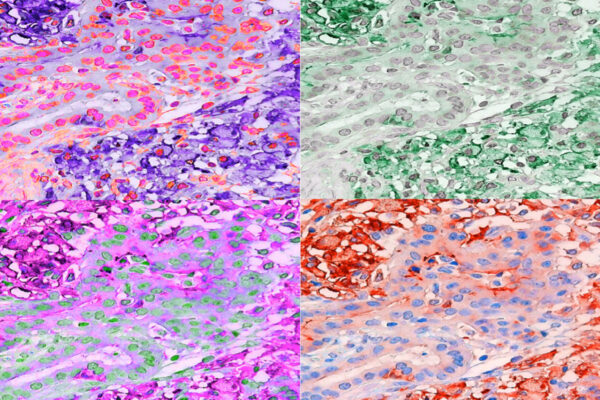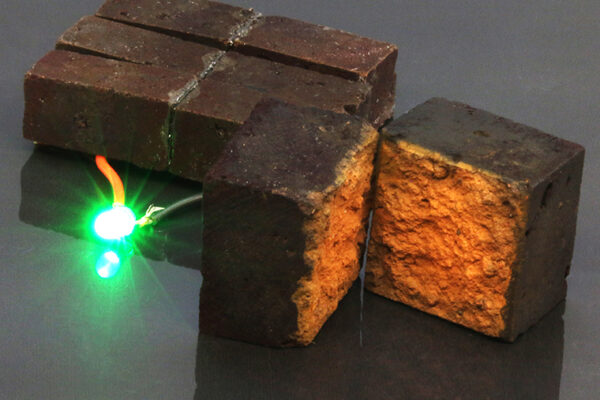Zeroing out their own zap
African fish called mormyrids communicate using pulses of electricity. New research from biologists in Arts & Sciences shows that a time-shifted signal in the brain helps the fish to ignore their own pulse. This skill has co-evolved with large and rapid changes in these signals across species.
Immunotherapy-resistant cancers eliminated in mouse study
In a mouse study, researchers at Washington University School of Medicine in St. Louis have found that an antibody that targets the protein TREM2 empowers tumor-destroying immune cells and improves the effectiveness of cancer immunotherapy.
Clinical trial focuses on reducing overactive immune response in COVID-19
School of Medicine researchers are investigating whether a drug approved by the Food and Drug Administration to treat rare diseases of an overactive immune system could help critically ill patients hospitalized with COVID-19.
Vaccine prevents pneumonia, elicits high levels of protective antibodies
Researchers at Washington University School of Medicine in St. Louis have created a COVID-19 vaccine candidate from a replicating virus. This experimental vaccine has proven effective at preventing pneumonia in mice.
Storing energy in red bricks
Red bricks — some of the world’s cheapest and most familiar building materials — can be converted into energy storage units that can be charged to hold electricity, like a battery, according to new research from chemists in Arts & Sciences.
Targeting ultrasound for noninvasive diagnosis of brain cancer
Researchers at Washington University in St. Louis are developing a method to diagnose brain tumors using ultrasonic energy — and no incisions. Lead researcher Hong Chen has received $2.5 million from the NIH to pursue further study.
Aging memories may not be ‘worse,’ just ‘different’
A study from the Department of Psychological & Brain Sciences in Arts & Sciences adds nuance to the idea that an aging memory is a poor one and finds a potential correlation between the way people process the boundaries of events and episodic memory.
Washington University, St. Louis County collaborate on COVID-19 survey
Up to 5,000 St. Louis County residents will be invited to participate in a survey and testing regarding COVID-19 to help gauge the impact the coronavirus has had on the county’s residents. Washington University in St. Louis and the St. Louis County Department of Public Health are leading the project.
Social work’s role in the health, well-being of LGBTQ people in China
As China’s government seeks solutions to social problems related to an evolving society, professional social work is increasingly entering new areas, including migrant and aging services, and is poised to take on a larger role in assisting lesbian, gay, bisexual, transgender and queer people, say two experts from the Brown School at Washington University in St. Louis.
Stepping up in St. Louis
Washington University in St. Louis incoming senior Katherine Wallace has a complicated relationship with St. Louis. Is there any other kind? Wallace is one of many members of the university community working this summer to make St. Louis a stronger, safer and more equitable city.
View More Stories









